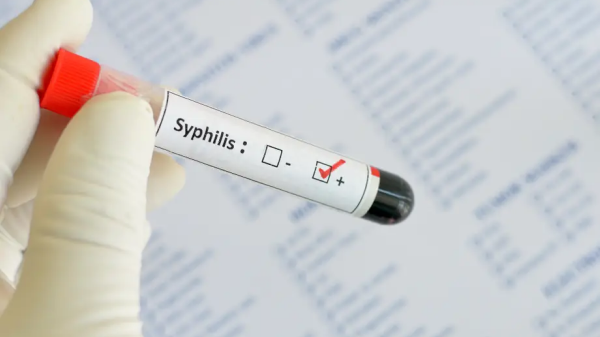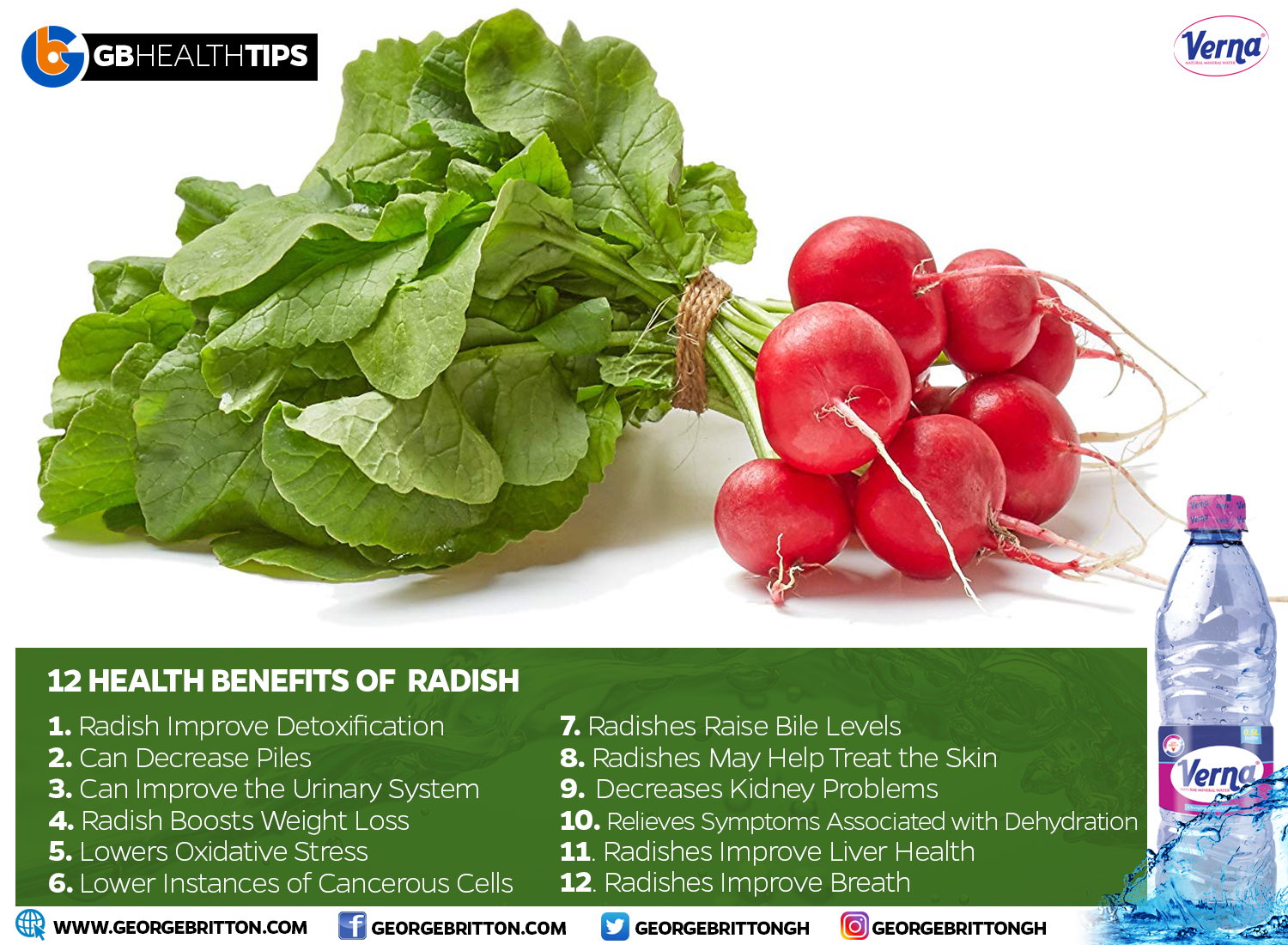Radish health benefits includes improving detoxification, can help decrease piles, can improve urinary system, help boost weight loss, lowers oxidative stress, can lower instances of cancerous cells, can help raise bile levels, may help treat the skin, decreases kidney problems, help relieve symptoms associated with dehydration, can improve liver health and can improve breath.
What is Radish?
Radish, that common and adored part of your salad, is a root crop, and it is strong or sugary in taste with a lot of juice. They are eaten uncooked, heated or preserved. The parts of radishes that are usually consumed are the greeneries, flowers, pods and seeds. This article will discuss the nutrition facts and 13 health benefits of radishes.
The radish is well-traveled and ancient, mentioned in historical Chinese records as primitive as 2,700 B.C. Egyptians cultivated them even before constructing the pyramids. Greeks and Romans liked them as large as they would shoot up, and served them using honey and vinegar. Radish agri-business reached England, Germany, Mexico, and Puerto Rico by the 1500s. Radishes are still a popular garden harvest, planted and harvested early and apparently impermeable to light ice.
When reaping or buying red radishes, make sure they’re not too big or they’re apt to be hollow or terse. Before chilling radishes, wash, remove greeneries from the top, and place in plastic baggies with a paper towel at the bottom. This enhances moistness content from the rest of the radish and helps keep them fresh for about a week. Sliced, they make a peppy addition to snacks and salads.
13 Amazing Health Benefits of Radish

1.Radish Improve Detoxification
Radishes are very good for the liver and stomach, and it acts as a powerful detoxifier also. But what does that really mean? That means that it cleanses blood, removing toxins and waste. It also decreases the obliteration of red blood cells that happens to people suffering from jaundice by increasing the supply of new oxygen to the blood. Black radishes are more favored in the treatment of jaundice, and radish greeneries are also very valuable in the treatment.
2. Can Decrease Piles
Radishes are considered fibre, which means that it is composed of indigestible carbohydrates. As such a good detoxifier, it helps settle the symptoms of piles very rapidly. Its juice also calms the digestive and excretory system, further relieving the symptoms of piles.
3. Can Improve the Urinary System
Radishes are diuretic in nature, which means that they increase the manufacture of urine. Juice from radishes also cures irritation and the red-hot sensation we sometimes get during urination.
4. Radish Boosts Weight Loss
They are also low in digestible carbohydrates, high in fibre and contain a lot of water, and radishes are therefore a very good dietary choice for persons who are determined to lose weight.
5. Lowers Oxidative Stress
Radishes are a major supply of anthocyanins, which are a type of flavonoids, which not only give color to radishes, but also deliver many health benefits.
6. Lower Instances of Cancerous Cells
Also, the isothiocyanates found in radishes have a major influence on the genetic pathways of cancerous cells. They change the pathways so much, that they can cause apoptosis, cell death, thus removing cancerous cells from copying.
7. Radishes Raise Bile Levels
Also, radishes are known to indorse the manufacture of bile. Bile is one of the most significant parts of good digestion, and helps to defend both the liver and the gallbladder.
8. Radishes May Help Treat the Skin
The water in radishes also helps to uphold healthy moisture levels in the skin. Smashed uncooked radish is a good cleaner and serves as an efficient face pack.
9. Decreases Kidney Problems
As a diuretic, cleaner, and antiseptic, radishes help in the treatment of numerous kidney disorders. Its antiseptic properties defend the kidneys from any contagions as well.
10. Relieves Symptoms Associated with Dehydration
Radishes are mostly composed of water, and they are a delightful way to keep your body hydrated, which is very helpful for your health. One of the most significant parts of remaining hydrated is the impact of water on the digestive system.
11. Radishes Improve Liver Health
Radishes are particularly helpful for liver and gallbladder functions. They control manufacture and flow of bile and bilirubin, acids, and enzymes. Also, it also eliminates extra bilirubin from the blood, and it encompasses enzymes like myrosinase, diastase, amylase and esterase. Regular ingesting of radishes defends your liver and gallbladder from contagions and ulcers.
12. Radishes Improve Breath
Apart from the benefits outlined overhead, radishes work as a wholesome hors d’oeuvre, mouth and breath freshener, purgative, and metabolism watchdog.
Bottomline
In conclusion, radishes are a favorite vegetable all over the earth. They contain significant quantities of vitamin C and numerous other vitamins and minerals, and a few not-so-familiar phytochemicals such as indoles, which cleanse, and the effective antioxidant flavonoids zeaxanthin, lutein, and beta carotene.
Radishes also contain an essential isothiocyanate antioxidant compound called sulforaphane, a proven cancer combatant. They eliminate bilirubin from the liver, stopping jaundice, and do other healthy undertakings like purifying kidney and urinary systems, regulating blood pressure, relieving congestion, and stopping respiratory problems such as asthma or bronchitis.
To boost up a salad and get some healthy benefits at the same time, purchase a bunch of radishes and slice them finely in your next mixed salad. Zingy! Finding it hard to digest all you just read? I propose you have some slices of radish to get your stomach working, and maybe make you hungry for more power food































































































